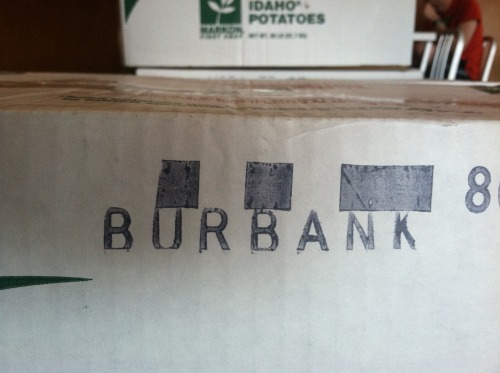I’m articulating these things because I don’t know if they are entirely clear to me, yet. I hope my personal exploration will be, at the very least, interesting, and at the very best, encouraging. I gladly invite anyone to disagree with me, call me out on poor ideas (or writing), or stare confused.
A while ago, I found some graffiti in a bathroom stall that read “Art is Nothing Permanent.” A few weeks later, the graffiti had reproduced and included such gems as “Art is Permanent Nothing,” “Nothing is Permanent Art,” “Is Art Nothing Permanent?” “Nothing is Permanent Art” and, in a dangerous act of defiance and self-righteousness, “Get your heads out of your asses and add something beautiful to the world!” There is a lot to say about this, it was rather a remarkable find. And in a beautifully cosmic moment, all of that conversation has now been painted over, with only my fond memories and a few pictures I took on my cell phone as proof of it’s existence.
But first I think I’ll address that last bit of writing on the wall – a call to add beauty to the world. While I can’t really argue with the sentiment of that gentle bathroom-goer, I am going to defend the courageous philosophers willing to engaging in a discourse of dangerous thoughts – the thoughts about why art is the way it is and what is permanent about it.
While I do think it’s good to add beautiful things to the world, I’d hate for anyone to do it without thinking first. (Beauty is not why I make art, but if beauty is why you make art, make sure you are thinking about what you are doing.) Art is dangerous and you need to have some understanding of it and your relation to it before you go off and create something as remarkable and potentially destructive as beauty.
But the nonsensical conversation on permanence in art really did get me thinking. It poses an interesting solution to a question I’ve asked myself for a long time – why am I making work that is made for performance? (Originally this was explicitly musical performance, but as of late has expanded to include theatre, performance art and all its variances).
Recorded media makes a lot more sense to create than performance, when you think about it. It can be played back and replicated infinitely – every listen is another authentic and exact experience of the art. Recorded music, at least, has become so ubiquitous that live shows are praised for sounding “just like the record.” (Which is an interesting predicament, because the record was intended to sound like live performance?) Recorded media is the medium by which our generation engages with music, recorded media is the way our generation engages with theatricality, recorded media is portable and hip and new and personal and ever-expanding and something that should appeal to me a lot more than what it does.
So why doesn’t it appeal to me? I think the bathroom graffiti gets close to an answer. The experience of “live” art (whether this means a live performance or the experience of standing in front of a “live” painting) is inherently an impermanent one – an experience that will end. And that makes the moment all the more special. In time based-mediums (like music, performance, theatre, etc…) the element of impermanence is compounded by the reality that time is passing and the moment that existed 3 seconds ago will never be again. It is a constant race of mortality and the passing of time that makes the experience unique and uniquely engaging (no two performance will ever be the same to any of the performers and no two performances will ever be the same to the audience members, even if the material is the same. There are variances in personal, emotional, and temporal states that create literally infinite possibilities for experiencing art). You can stretch this into an idea about mortality – that the impermanence of art reminds us of our own impermanence and thus creates a human connection with something that is not human – but I don’t know how comfortable I am making that bold of a leap. But that truth of impermanence is brutal and fascinating, that truth that art doesn’t exist anymore once we stop engaging with it.
I think this is why digital and recorded mediums don’t interest me as much. They exist in duplicate, they exist in ones and zeros and magnetic forms that I can’t see and I can’t see deteriorate in front of me. This is why (I think) the live art experience (whether it be music, visual art, poetry, etc) is much more engaging. I might change my mind in the future. I have a great love of pop music (a medium which exists very strongly in a recorded form) and want to produce a pop album someday.
This all being said, I must note that recorded media is, in fact, just as impermanent as live performance. The difference is perhaps decay rate. Live experience evaporates before your eyes and recorded media takes much longer before it is consumed by the ether.
But I think that right now my heart lies with performance, with impermanent objects and the constant reminder that the event you are experiencing is entirely unique and undefinable. I think that this is an element of my work that is vital: awareness of its own impermanence.
Which then leads me back to the graffiti on the bathroom stall. Is nothing permanent art? Is the idea of nothing permanent art? Is permanent nothing? Is art simply the awareness of impermanence?
More questions.




